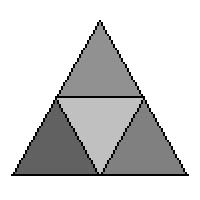Moderate Party (Sober Thought)
| Sober Thought Political Party | ||||||||||||
|---|---|---|---|---|---|---|---|---|---|---|---|---|
|
The Moderate Party -- from its dues-paying membership, its voters, its unpaid party officials and its elected representatives -- takes the national motto of Sober Thought to heart: "We are extreme in our moderation."
It was formerly called the Centre Party, but changed its name to avoid confusion with or causing offence to the Conservative Party. Its activists (some call them passivists because of the moderate stance, but they mistake moderates for pushovers) believe in the big tent theory of partisan politics so there is plenty of internal diversity of political opinion. They pride themselves on being able to listen to all sides of an argument and come to an understanding or accommodation with all or most of them.
Of course, more ideological political opponents like the Christian Unity Party or Liberal Democratic Action call them unbridled opportunists -- while simultaneously trying to recruit supporters to their own side. This strategy frequently works because Moderates by definition are open to changing their political labels, but they tend to drift to other big tent parties like the Conservative Party and Socialist Party instead of small tent parties like the CUP and LDA.
Political flexibility and negotiation skills, along with a typical first or second place showing in the polls, ensure that virtually every federal coalition government in Sober Thought has one or two Moderates in the Inner Cabinet and often in the Chief Ministry as well.
Its logo is a calthrop, a four armed figure arranged such that one point always faces up. In the Middle Ages, they were sprinkled on the battlefield to spook horses charging over protected fields. The party chose this because it feels it always points up; detractors say it chose the symbol because they are constant pains.

